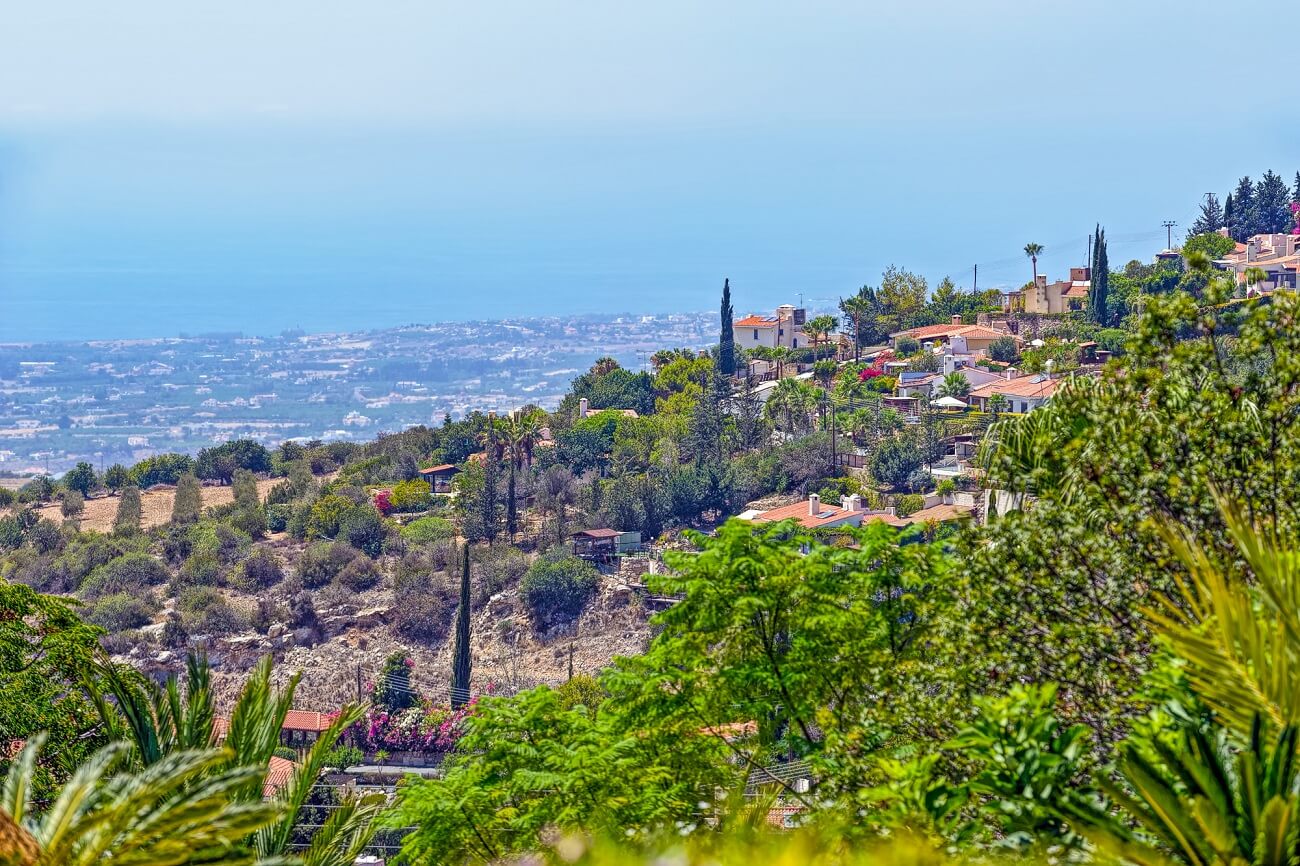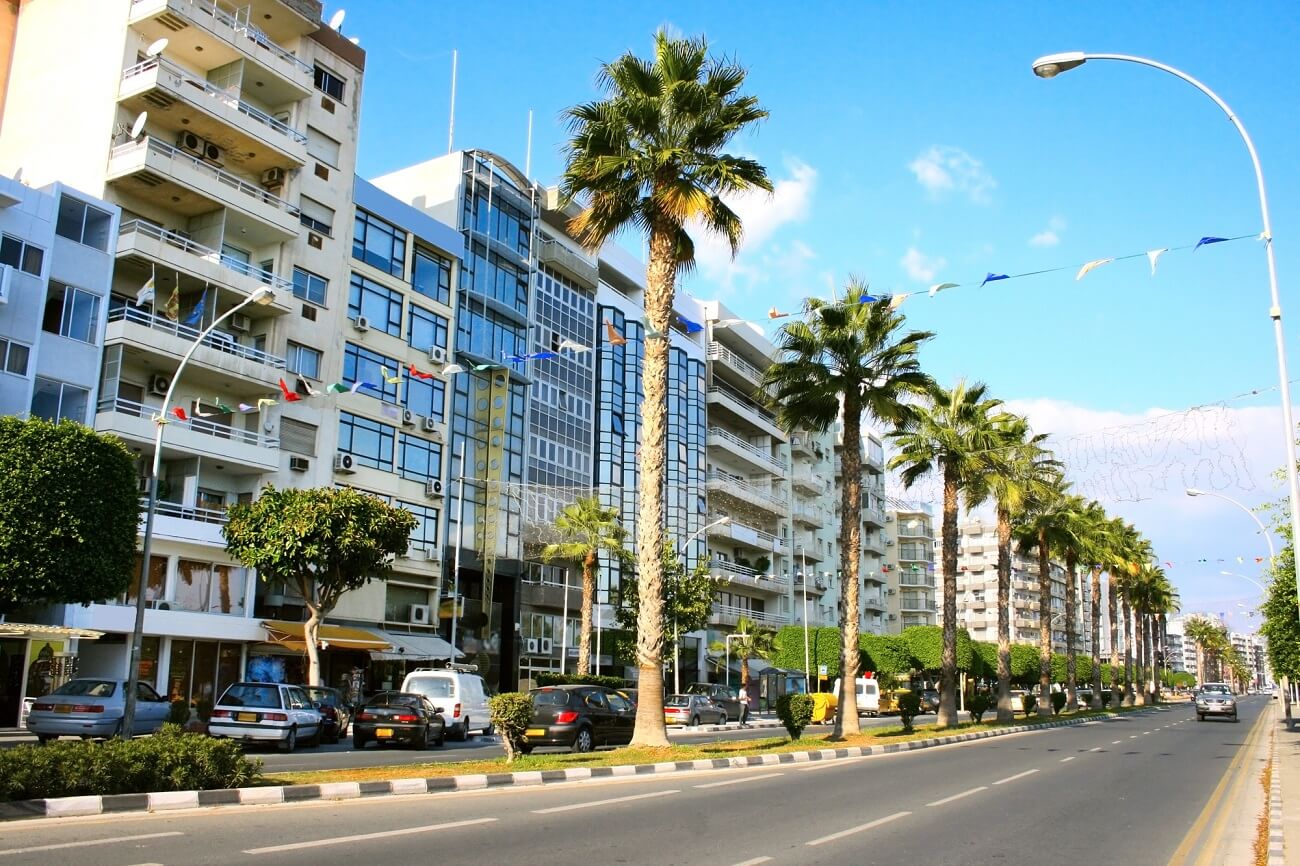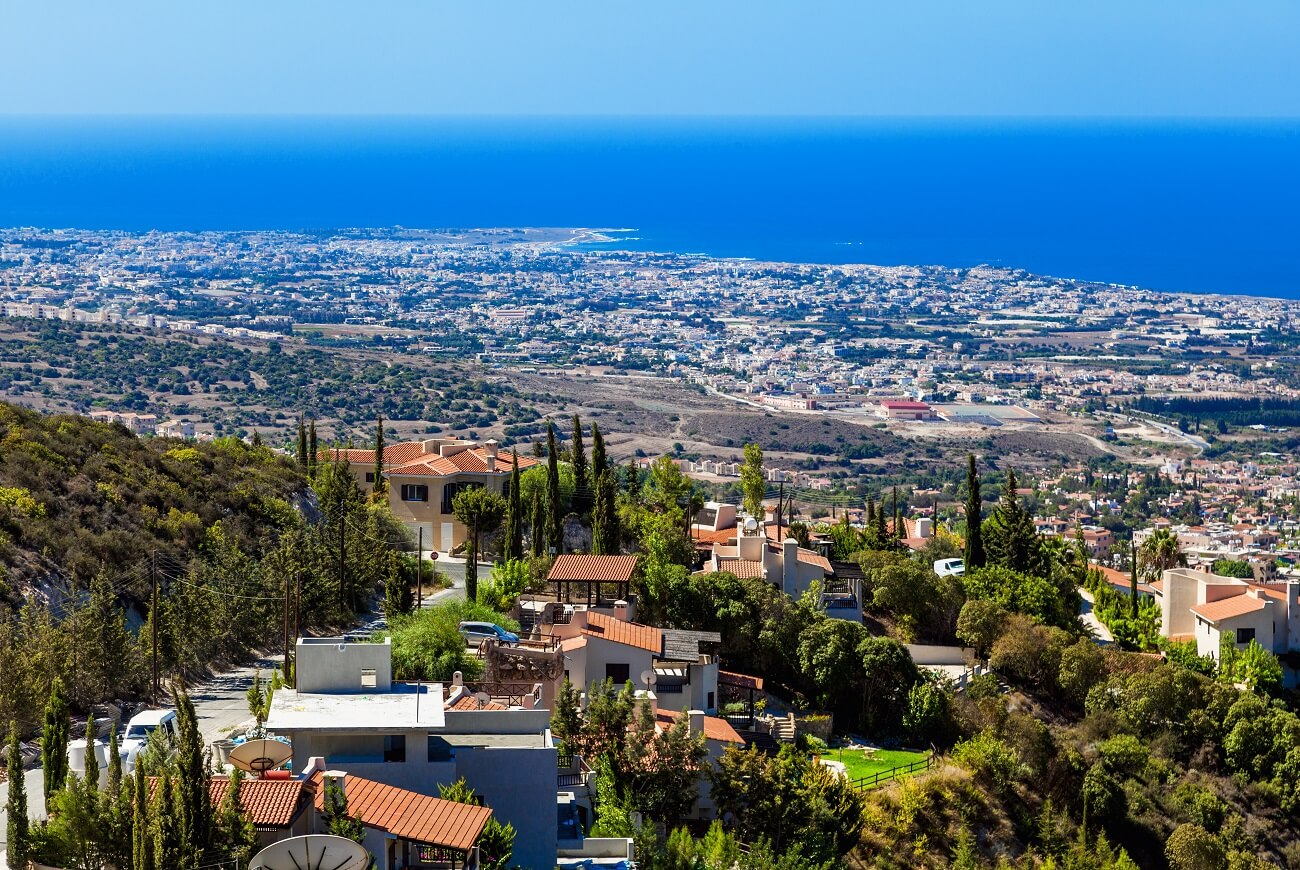

The birthplace of Aphrodite, entwined with many legends, the cradle of civilization, where it seems that every stone is familiar with the ancient deity. Here Aphrodite was born from the foam, and here Zeus threw lightning! Cyprus is kilometers of beaches, indented with azure bays, underwater mysterious caves, where treasures still not found are hidden. What awaits a tourist in Cyprus? We have compiled a guide to help travelers around the island.

Depositphotos
Two parts of Cyprus
There are two regions in Cyprus: North and South. But they have one capital: Nicosia. But it is also divided into two parts. Each of them is the "capital" of its part of Cyprus: northern and southern.
The main resorts of Cyprus are located in the southern part. This is the European part of the island.
Northern Cyprus belongs to Turkey. Most likely, you are planning your vacation in the southern part of Cyprus, which is called the Republic of Cyprus.
It so happened that in 1974 there was a conflict: a single state was divided into two parts. The Republic of Cyprus and the Turkish Republic of northern Cyprus appeared. Since then, there has been a UN peacekeeping contingent in the buffer zone between them. And part of the territory of the island was retained by the UK after Cyprus gained independence in 1960. And until now, British military bases are located on the island.
- Almost 60% of the island belongs to the Republic of Cyprus: this is the southern part of the island with the main airports in Larnaca and Paphos. The Republic of Cyprus is predominantly inhabited by Greek Cypriots. About 900 thousand people live in the Republic of Cyprus. The official language of the Republic of Cyprus is Greek. Currency - euro. The main cities are Larnaca, Ayia Napa, Protaras, Limassol. The Republic of Cyprus is an Orthodox state where church holidays are considered state holidays. You will find over 700 temples and ancient monasteries. And the most famous monastery is located high in the mountains and has become a place of pilgrimage.
- 36% is occupied by the Turkish Republic of Northern Cyprus. It is a partially recognized presidential republic. It is recognized only by Turkey. The main airport is called Ercan and it only accepts planes from Turkey. 300 thousand people live in the Turkish part: they are Turkish Cypriots. The official language of the Turkish Republic of Northern Cyprus is Turkish. Currency - Turkish lira. In the northern part, the main cities are Kyrenia, Famagusta, Nicosia. In the Turkish part of Cyprus, the majority of residents are Muslim.
- 4% of the island's territory is reserved for military bases and a buffer zone.
Nicosia is an amazing capital, because it "dominates" two states at the same time. This is the only city in Cyprus in the center of the island where there is no access to the sea.
The city is divided into two parts by a green line. In the buffer zone are UN peacekeepers.
In the southern part of Nicosia are the government and administrative bodies of the Republic of Cyprus. In the northern part - administrative buildings of its Turkish part.

Depositphotos
What time is it in Cyprus
In Cyprus, it is customary to switch clocks to winter and summer time.
- Time zone in winter: UTC +2
- Summer time zone: UTC +3

Erik Karits
History of the island
There are several options for the origin of the name of the island. According to one of them, the root is the Latin word "cuprum" or copper. After all, Cyprus has long been famous for the mining of copper, which was generously supplied to the countries of Asia, Africa and Europe. The second version of the origin of the name is Cyprida, from the second name of Aphrodite, who, according to legend, was born on this beautiful coast.
Cyprus is the third largest island in the Mediterranean. It is second only to Sicily and Sardinia. And the length of the coastline is 780 km. It is stretched from west to east and reaches 240 km. And its width is only about 100 km. Therefore, the island is quite easy to travel around in a week. There are two main mountain ranges on the island.
- Troodos mountain range with the highest peak, Mount Olympus (Olymbos), reaching almost 2000 km.
- Kyrenia mountain range.

Depositphotos
Visa issues
The need to obtain a visa depends on the tourist's passport. EU citizens holding a Schengen visa can freely visit the Republic of Cyprus at any time. In other cases, you should individually check with the embassy the need to obtain a visa: citizens of many countries can obtain it upon arrival for up to 90 days.
To travel to northern Cyprus from the southern part, you do not need to apply for a visa. For example, you arrive at the airport in Paphos and want to cross the border to see Northern Cyprus. At the checkpoint they do not put a stamp in the passport about crossing the border. Keep in mind: with a mark about visiting northern Cyprus, you may not be allowed back to South: there will be difficulties in flying back.
In total, there are 7 checkpoints through which you can get from southern to northern Cyprus.

Depositphotos
Climate: when is the best time to visit Cyprus
Cyprus is suitable for holidays at any time of the year. The subtropical and Mediterranean climate make the island quite hot during the summer.
- The climate of Cyprus is dry in summer: the temperature can reach +45°C and humidity - 46-60%. Summer is the perfect time to visit Cyprus. But it is worth remembering that walking along forest paths and mountain slopes can be quite tiring due to the heat. The weather in summer high in the mountains is much milder: 3-7 ° lower than on the coast.
- In winter, it can be up to + 20 ° during the day, and at night the thermometer drops to a maximum of + 12 °. Humidity at the same time - 60-80%. It is much cooler in the mountains than on the coast, and ski resorts open in winter. You can ski and snowboard. The rainiest months are December and January. That's when it rains more often.

Depositphotos
Housing in Cyprus
In Cyprus, you can relax quite inexpensively if you stay in apartments with a kitchen and eat in supermarkets.
The most expensive months for holidays in Cyprus are July and August. That's when everything goes up in price. Also, prices rise mercilessly on the May and New Year holidays.
A significant part of the budget is housing. 20-30 € per person per day is a summer reality for inexpensive apartments in Paphos. The most expensive hotels are located in Paphos, Limassol and fashionable Ayia Napa. They are followed by Protaras and other lesser known resorts. The most budget holiday on the coast in Larnaca.
The cost of a week of holidays in Cyprus at the height of the season is 650-1000 € for two. In the low season, the price already starts from 500 € for two, if we talk about package holidays.
But at the same time, meals are usually not included in such a tour, which should be taken into account when planning a trip. Rest in an apart-hotel will cost a minimum of 30-50 € for two.

Depositphotos
Food in Cyprus: cafes, restaurants, shops
As a rule, meals are not included in the tour package, or only breakfast is included. All inclusive in hotels in Cyprus is not as common as in Turkey or Egypt. And it costs quite a lot. There are such hotels, but their cost is high. It is much more profitable to opt for a breakfast-based hotel. Or stay in an apartment with a kitchen.
- An English breakfast will cost 4-6 € per person, and dinner in a restaurant will cost 15-20 € per person.
- An inexpensive lunch can be found in traditional taverns: about 8€ per person. On average, you will spend 5-15 € per person per day for food.
- The cheapest way is to buy food in supermarkets and cook on your own in the apartment. For example, a well-known European discounter Lidl offers products at budget prices.

Depositphotos
What is served in Cyprus: cuisine
The cuisine of Cyprus is very interesting: it is close to Greek and here they also serve Greek salad, offer olives and generously pour olive oil. But there are Turkish and Arabic echoes. A large selection of sauces, hummus, tahina, pickled cabbage, spicy octopus, Turkish delight and more can be found in the taverns of Cyprus. Traditional sweets in Cyprus are Turkish delight, baklava and halva. In seaside towns, fish and seafood are most valued, and in mountainous areas they are treated to meat delights.
And, of course, they offer Cypriot wine, because the island is rich not only in olives, but also in vineyards. The wines of Cyprus are well known: they produce both white and red wines. Taste the famous knight's wine Commandaria and stronger drinks. And here, citrus fruits, melons, watermelons, wheat, almonds, walnuts, pomegranates, peaches and much more are reverently cultivated.

Depositphotos
Major holidays
Since Cyprus is an Orthodox republic, Christian holidays are celebrated here. For example, Christmas, Good Friday, Easter Sunday, Easter Monday are celebrated at the state level.

Depositphotos
Travel by car
Ideally, rent a car in Cyprus, because it is the car that “gives wings” and freedom of movement. By car, you can travel around the beautiful island and look into different corners. The cost of renting a car is about 20-40 € per day. The cost of gasoline is 1.25 euros per liter of the 95th. Please note that there is left-hand traffic in Cyprus and it will be quite difficult for you at first.
By the way, the license plates of all rented cars in Cyprus begin with Z. This is done so that the police and local motorists understand that they are dealing with a foreigner who may be unaccustomed to left-hand traffic.

Depositphotos
Excursions in Cyprus
A tour of the island builds 40-50 € per person depending on the route. For example, a water park will cost 30-40 € per person or 16-25 € per child. Sea trip - 10-12 €, entrance tickets to museums - 2.5-5 euros, sea attractions - from 7 €.

Depositphotos
How to get to the resorts of Cyprus
Many airlines in the world fly to Cyprus. In the European part, the Republic of Cyprus, the two main airports are Larnaca and Paphos. The northern part of Cyprus has its own airport Ejan, however, it cannot receive international flights, as it is the air gate of the unrecognized republic. Only Turkish planes fly. There is also a developed ferry service.
The southern part of Cyprus can be reached from the Greek islands and Egypt. Ferries from the Republic of Cyprus depart in different directions from Limassol. You can go to Greece to such islands as Rhodes, Crete, to the Egyptian Port Said, to the Israeli Haifa. Liners that cruise around the Mediterranean also stop in Limassol. The northern part of Cyprus is only connected by ferry to the Turkish coast.

Depositphotos
Language issue
As we already mentioned, Greek is spoken in the southern part of Cyprus: all signs in shops are in this language. The northern part of Cyprus speaks Turkish. And in all tourist sites they speak English. The most Russian-speaking city in Cyprus is Limassol, where a large community .

Depositphotos
Mobile communication and Internet
Several local operators operate in Cyprus. The cost of their services is approximately the same. But still, there are some differences.
- The most common connection in the Republic of Cyprus is from CYTA. You can top up your account at any supermarket. The best quality connection in southern Cyprus, with a good coverage area reaching even remote corners. But there is almost no operator on the northern coast. For 5 euros they offer 600 MB, for 10 € - 1.5 GB and for 15 € - 3 GB for a month.
- EPIC covers the territory of northern Cyprus only partially.
- Prime Tel is a private mobile operator offering tourists a Pay package as you go. It is replenished with cards of 5, 10, 20 and 50 euros. 4 GB package - 15 euros.
You can buy a SIM card at any supermarket and at the airport. But almost every hotel has Wi-Fi. Often you can find it in public areas or use it in a cafe by asking the staff for the password. Some hotels charge extra for Wi-Fi in the rooms: this point should be clarified before booking a hotel.

Depositphotos
Money in Cyprus
Take the euro with you to southern Cyprus: it has been the official currency since 2008. You can also easily withdraw money from an ATM. Dollars and other currencies can be easily exchanged at a bank, at an exchange office or at a hotel. The commission is less in exchange offices. But avoid exchanging large amounts at airports: as a rule, they offer an unfavorable rate there.
- For currency exchange you need to show your passport.
- Banks charge an additional commission for the exchange. So you will find the best rate in street exchange offices.
- Banks are open five days a week and until one in the afternoon, and exchange offices - until 20:00.
- Banks do not charge a fee for withdrawing cash from a card. But your bank may charge it.
- You can pay for purchases and services with a card almost everywhere. But sometimes small shops do not accept cards for purchases if you have an amount of less than 10 €. This threshold can be higher or lower. In this case, you need cash or a purchase for a larger amount.
- You can leave Cyprus with an amount not exceeding 10,000 €. It is allowed to enter from any.
In northern Cyprus, the Turkish lira is used. Euros or dollars are also accepted for payment, although there may be nuances. You can exchange currency in banks or exchange offices .

Marta Posemuckel
Tipping in Cyprus
Tipping in the Republic of Cyprus is not obligatory. This is a European country, and in some restaurants tips are included in the bill or in the cost of dishes. In northern Cyprus, the situation is somewhat different: there it is customary to round everything up, or you can leave money for cleaning the room or not pick up the change in the restaurant.

Depositphotos
Transport in Cyprus
If you are not ready to risk driving a car, then do not worry: the bus service is well developed on the island. It is easy to get from one end of the city to the other during the day.
- There are three types of buses in Cyprus: urban, rural, intercity.
- The fare for intercity buses is about 7 €.
- Travel around the city on average 1.5 €.
- You can pay for the fare in the cabin, immediately upon landing.

Depositphotos
Intercity buses
They run several times a day, connecting the largest cities of Cyprus and the main attractions. But buses do not run so often: usually 1 flight every 1-2 hours. Most buses run in the morning, so it is better to leave early. If you are planning a day trip, please note that the return flight leaves early. The last flight can be at 18-19 hours.
- There will be fewer buses on some routes on Sundays.
- Pets are not allowed on intercity buses. But you can take a bike.
- Intercity buses run from several companies, and accordingly they have different prices. The cost starts from 4 euros.
- Only intercity buses and city taxis run to the airport.
Main intercity routes:
- Ayia Napa - Larnaca - Paralimni
- Nicosia - Limassol - Paphos
- Nicosia - Limassol
- Larnaca - Nicosia
- Larnaca - Limassol
- Paphos - Limassol - Polis
- Larnaca - Paralimni - Protaras
- Paralimni - Protaras - Ayia Napa
- Paralimni - Derynia - Larnaca
- Paralimni - Protaras - Larnaca
There may not be a route on one or another day of the week, so check everything on the official website of international bus lines.
By the way, in Nicosia in the Greek part on weekdays you can find free yellow buses that run every 20-30 minutes.

Depositphotos
City buses
The standard price tag is 1.5 euros. Sent to all cities. All buses run on schedule. At stops, electronic displays are often posted with the route and departure time.
Rural buses
They run through small villages. As a rule, only once or twice a day, from Monday to Saturday. Therefore, if you want to get to a remote monastery in this way, it can be problematic. Such buses can be cheaper than intercity ones, although they take longer.

Depositphotos
Taxi in Cyprus
There are three types of taxis on the island: intercity, intracity and rural.
- Intercity taxi can accommodate 4-8 people. They run every half hour and connect the main cities. Such taxis will never look into a modest village. A place in a taxi must be booked in advance, paid in the cabin. And you can land anywhere you want.
- City taxi operates around the clock and in all cities. You can just catch him on the street. There is a day and night rate. The day rate is 15% cheaper than the night rate. The driver also pays for the waiting time for the passenger and the carriage of luggage weighing more than 12 kg. An additional fee is charged for the transport of animals - 0.55 euros, luggage - 1 and 2 euros. On holidays prices are slightly higher. For example, the fare from Larnaca airport around the city is about 20 €, and to get to Ayia Napu - 40 €.
- Rural taxis do not have a meter and run between small towns and villages. The minimum cost of the trip is 4 euros. The daily rate is cheaper.
Cyprus, especially its southern part, is a friendly tourist region, where everything is thought out and created for the maximum comfort of guests. And traveling around the island is easy thanks to the superbly developed infrastructure.

Depositphotos
More articles
- Indonesia's National Parks: 15 Amazing Reserves
- 17 Temples in Bali You Must See
- Hot Springs in Bali: Which and Where to Visit
- Indonesia's Natural Attractions: 18 Places Worth Seeing
- Meru Betiri National Park in Indonesia
- The Most Interesting Routes in Bali: 12 of the Best
- Mauritius in Winter: Weather and Top Attractions
- Samosir Island in Sumatra: All About Vacationing
- The Maluku Islands in Indonesia: All About Vacations
- 10 Unique Facts About Indonesia



